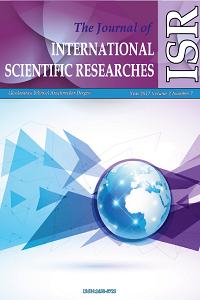Abstract
It is a type of support that can provide
advantages such as increasing exports to countries in the context of growth
strategy based on export processing, providing competitiveness to exported
products in international markets and improving export markets. This support is
based on the principle of temporarily importing the goods and re-exporting the
processed goods obtained after the processing operation in the Customs
Territory of Turkey. In this regard, processing regime can directly and / or
indirectly affect the current account balances of the countries. The aim of
this study is to investigate the effects of sectoral imports and exports under
the processing regime to current balance for the period of 2003q1-2016q2 in
Turkey. According to the results obtained this study, there is a positive
effect of industrial exports, industrial imports and mining exports covered
under the processing regime on the current balance. In the light of these
determinations, policy makers are advised to increase supports for industrial
exports and imports and mining exports, and to revise supports for agriculture
imports and exports and mining imports in terms of the processing regime
regulations.
References
- Ricardo, Bustillo ve Carlos, Rodríguez (2011), The influence of trade union bargaining power on EU processing trade, Journal of Post Keynesian Economics, 33:4, 621-644
- Görg, Holger (2000), Fragmentation and trade: US inward processing trade in the EU, Weltwirtschaftliches Archiv, ISSN 0043-2636, Mohr, Tübingen, Vol. 136, Iss. 3, pp. 403-422
- Sayılgan, Güven ve Şenol, Coşkun (2010), “Dahilde İşleme Rejimi ve Türk İşletmelerinin ihracatı üzerine etkileri”, Tübitak, 2010.
Abstract
Dâhilde işleme rejimi ihracata dayalı
büyüme stratejisi bağlamında ülkelere ihracatlarını artırmak, ihraç ürünlerine
uluslararası pazarlarda rekabet gücü kazandırmak, ihraç pazarlarını geliştirmek
gibi avantajlar sağlayabilen bir destek türüdür. Bu destek malların geçici
olarak ithal edilmesi ve Türkiye Gümrük Bölgesi içerisinde işleme faaliyetinden
sonra elde edilen işlem görmüş ürünün ihraç edilmesi esasına dayanır. Bu
yönüyle dâhilde işleme rejimi ülkelerin cari dengelerine doğrudan ve/veya
dolaylı olarak etki edebilmektedir. Bu çalışmanın amacı Türkiye’de
2003q1-2016q2 dönemi için dâhilde işleme rejimi kapsamındaki sektörel ithalat
ve ihracatın cari dengeye etkisini araştırmaktır. Çalışmadan elde edilen
sonuçlara göre dâhilde işleme rejimi kapsamındaki sanayi ihracatı, sanayi
ithalatı ve maden ihracatının cari denge üzerinde olumlu etkileri mevcuttur. Bu
tespitler ışığında politika yapıcılara dâhilde işleme rejimi düzenlemeleri
açısından sanayi ihracat ve ithalatı ile maden ihracatına verilen desteklerin
arttırılması ve tarım ihracat ve ithalatı ile maden ithalatına verilen
desteklerin yeniden gözden geçirilmesi önerilmektedir.
References
- Ricardo, Bustillo ve Carlos, Rodríguez (2011), The influence of trade union bargaining power on EU processing trade, Journal of Post Keynesian Economics, 33:4, 621-644
- Görg, Holger (2000), Fragmentation and trade: US inward processing trade in the EU, Weltwirtschaftliches Archiv, ISSN 0043-2636, Mohr, Tübingen, Vol. 136, Iss. 3, pp. 403-422
- Sayılgan, Güven ve Şenol, Coşkun (2010), “Dahilde İşleme Rejimi ve Türk İşletmelerinin ihracatı üzerine etkileri”, Tübitak, 2010.
Details
| Journal Section | Articles |
|---|---|
| Authors | |
| Publication Date | December 26, 2017 |
| Submission Date | April 5, 2017 |
| Published in Issue | Year 2017 Volume: 2 Issue: 7 |



